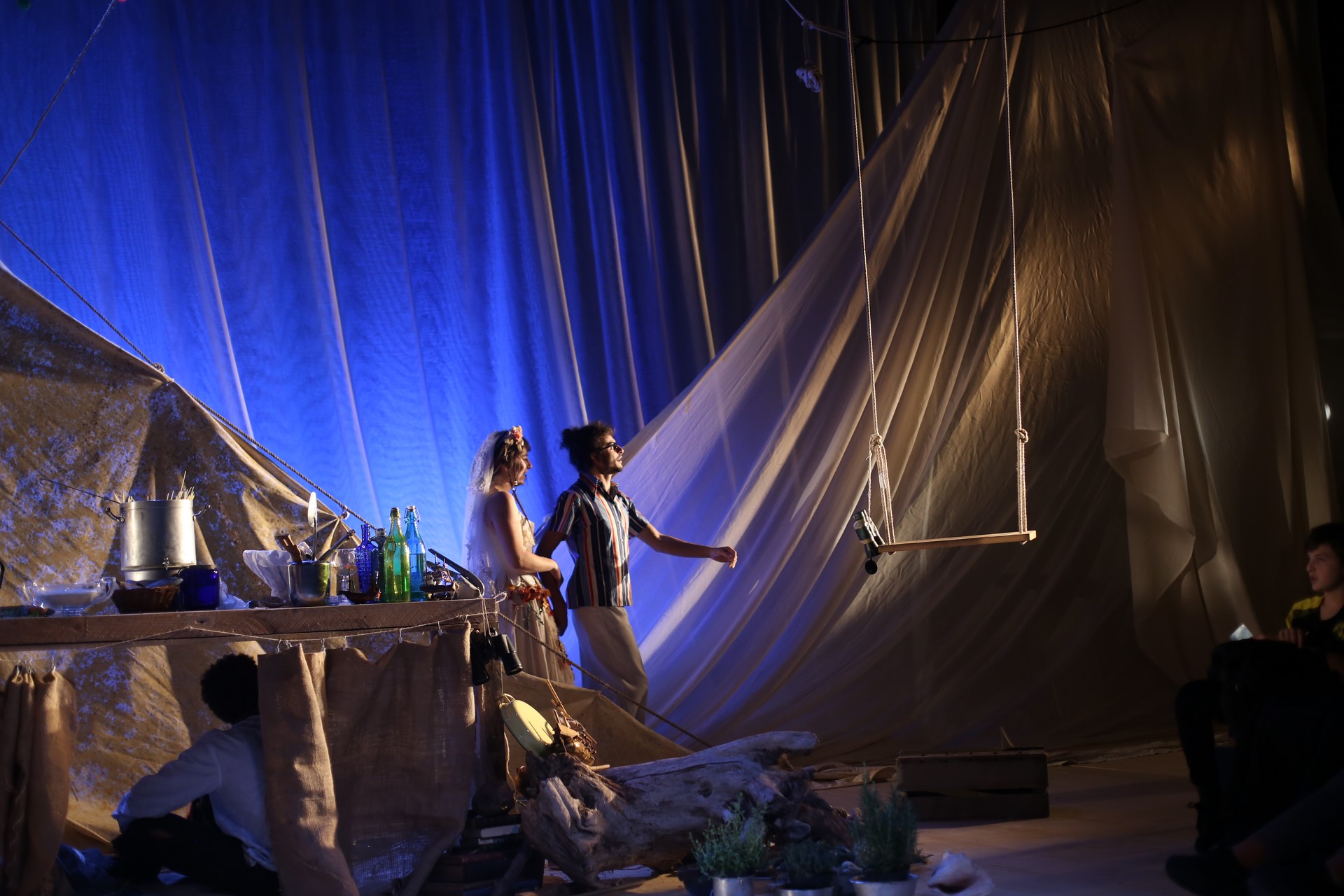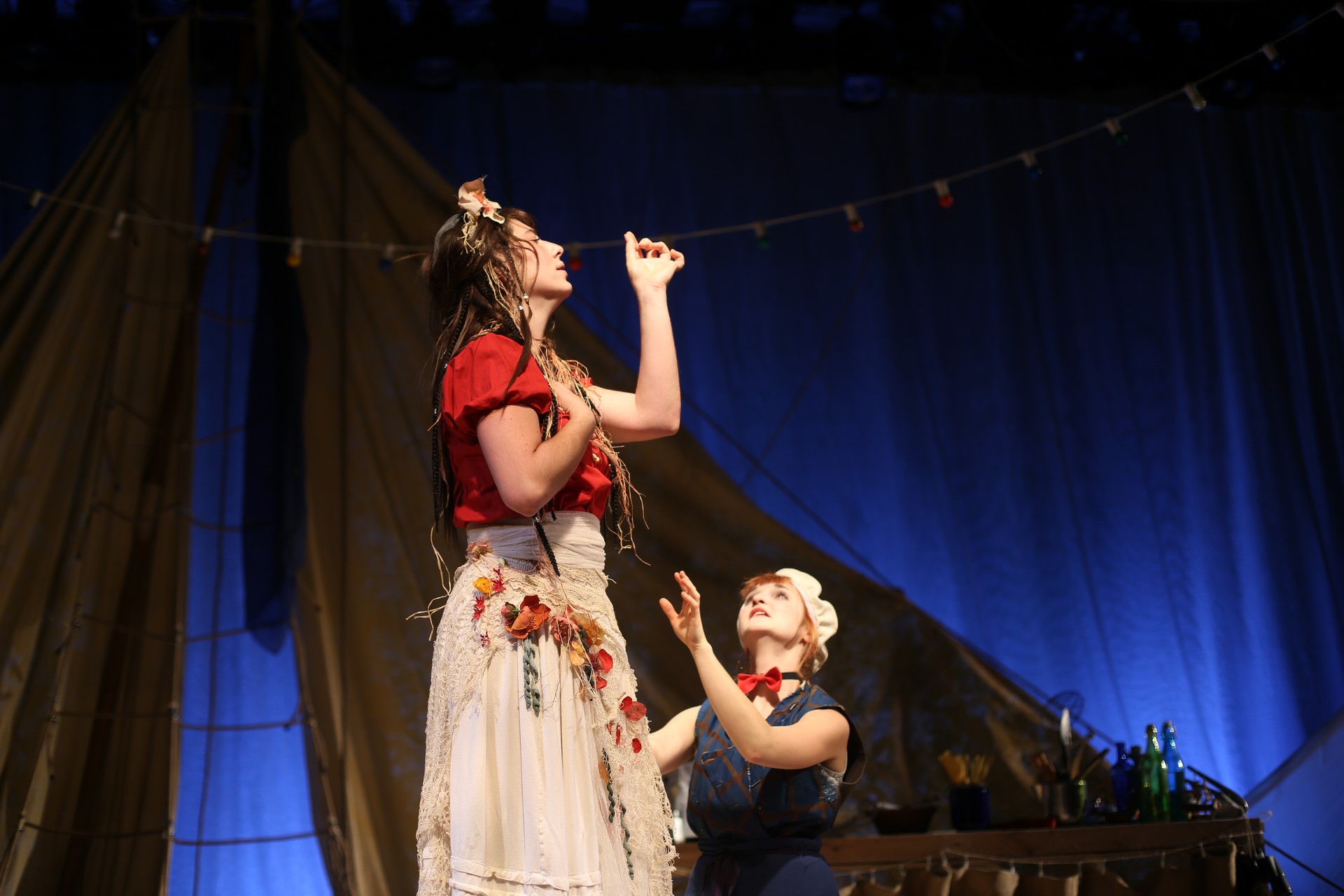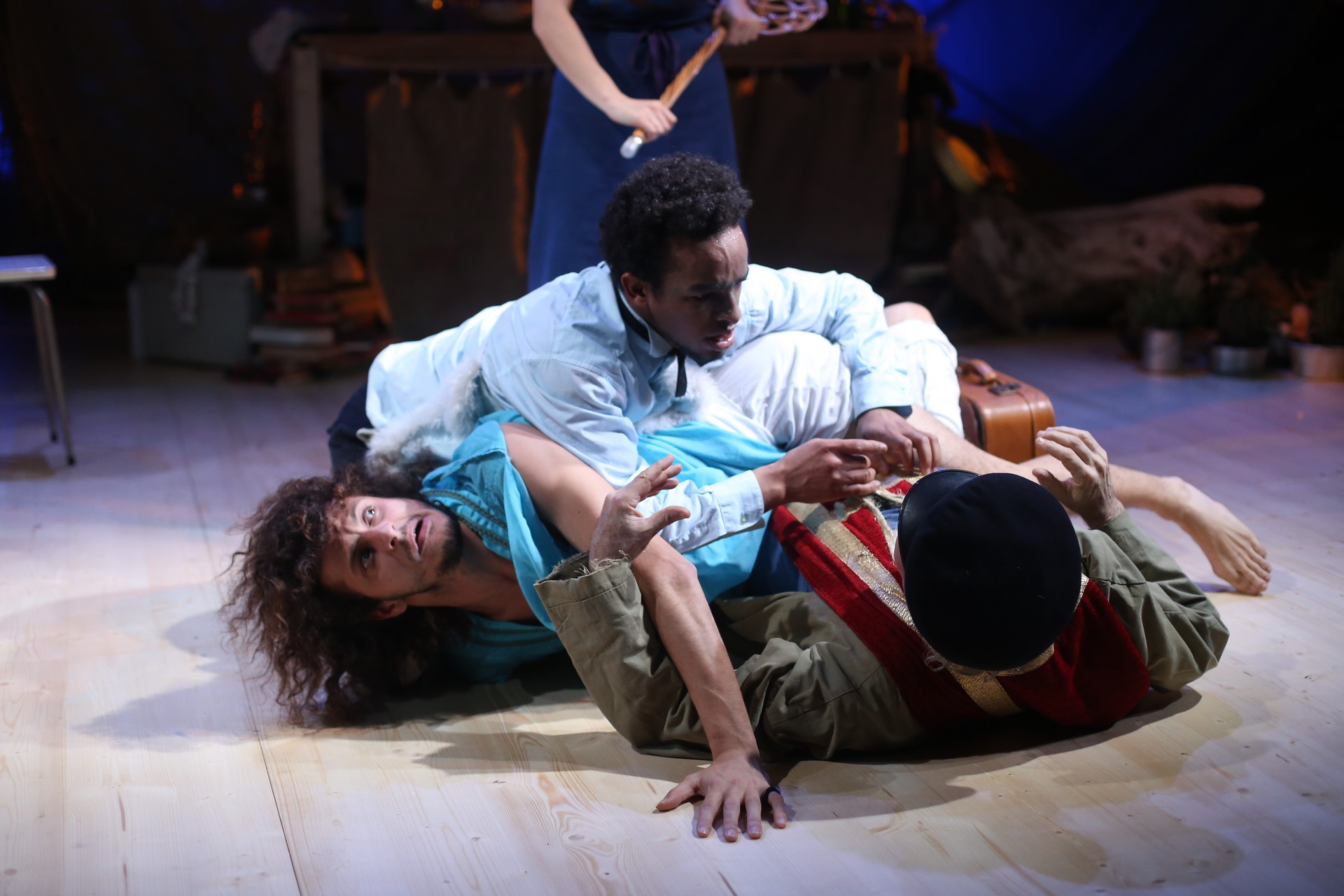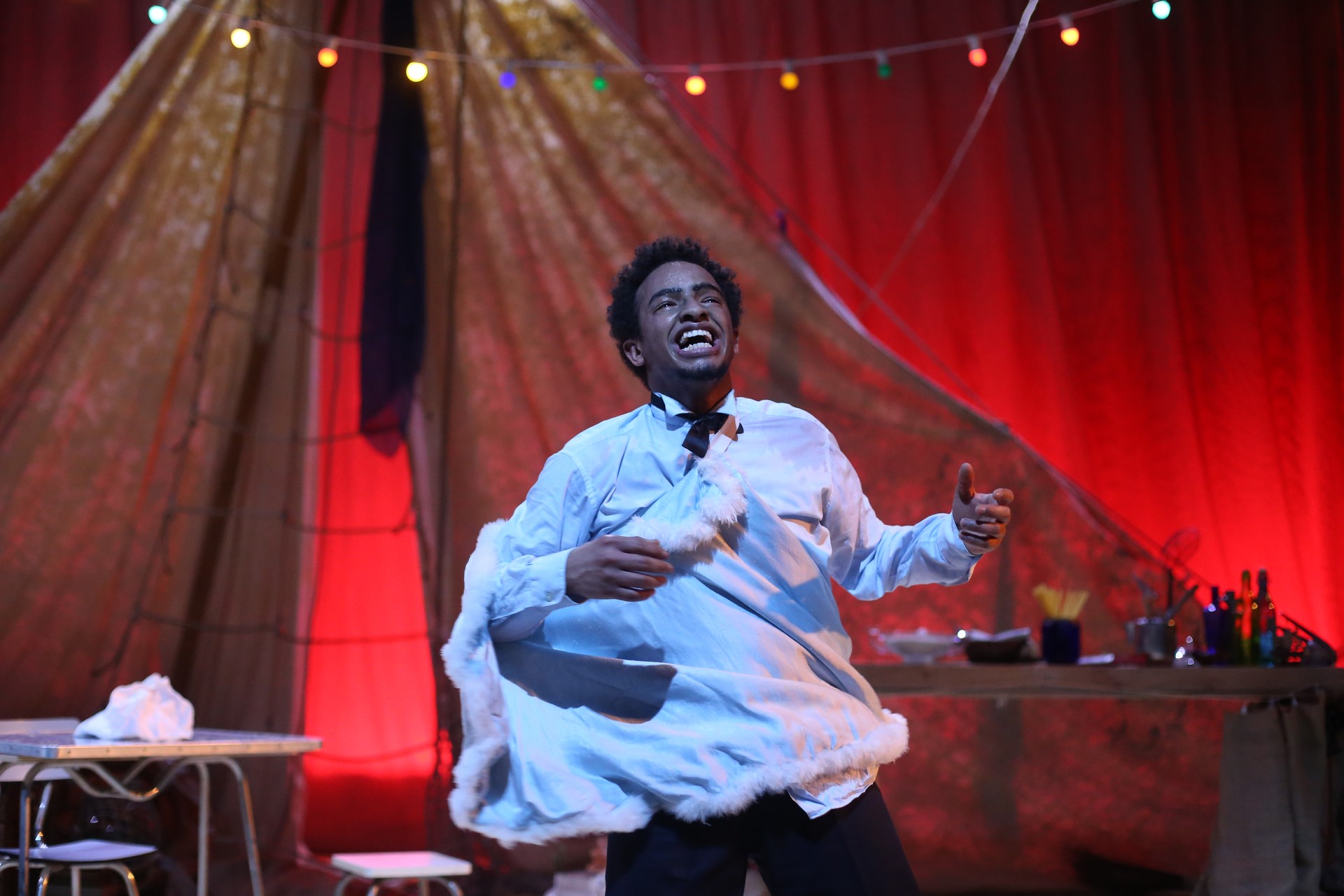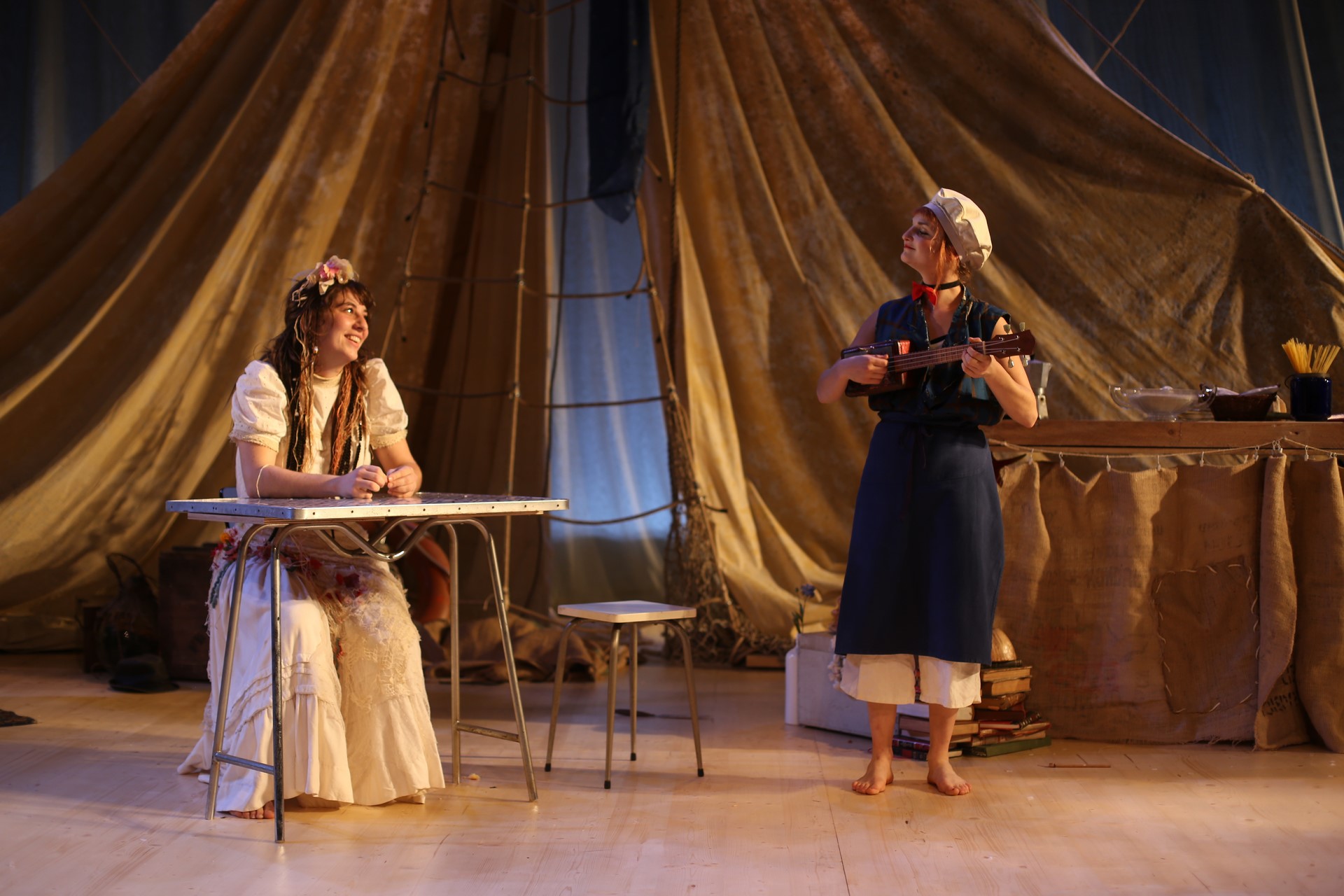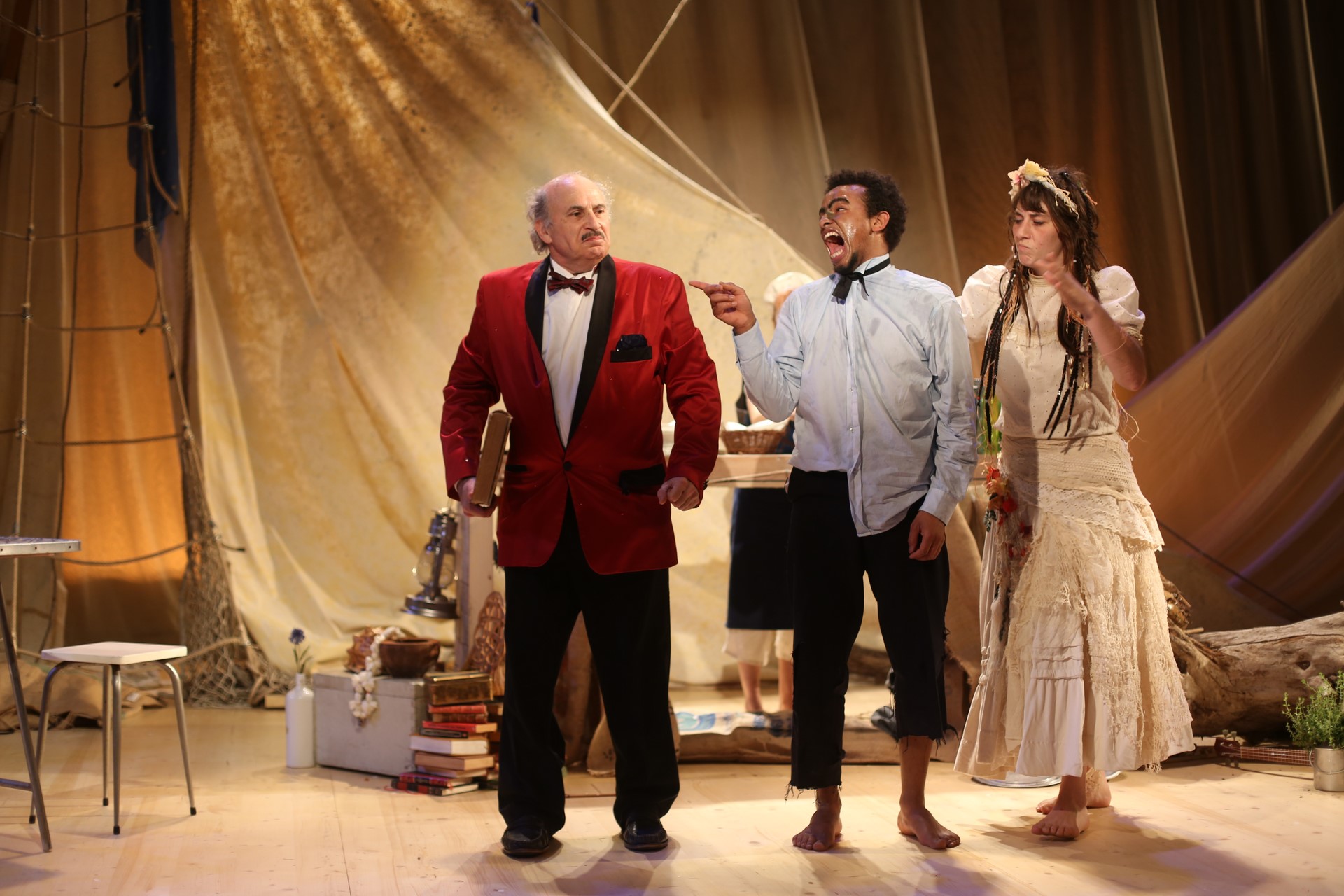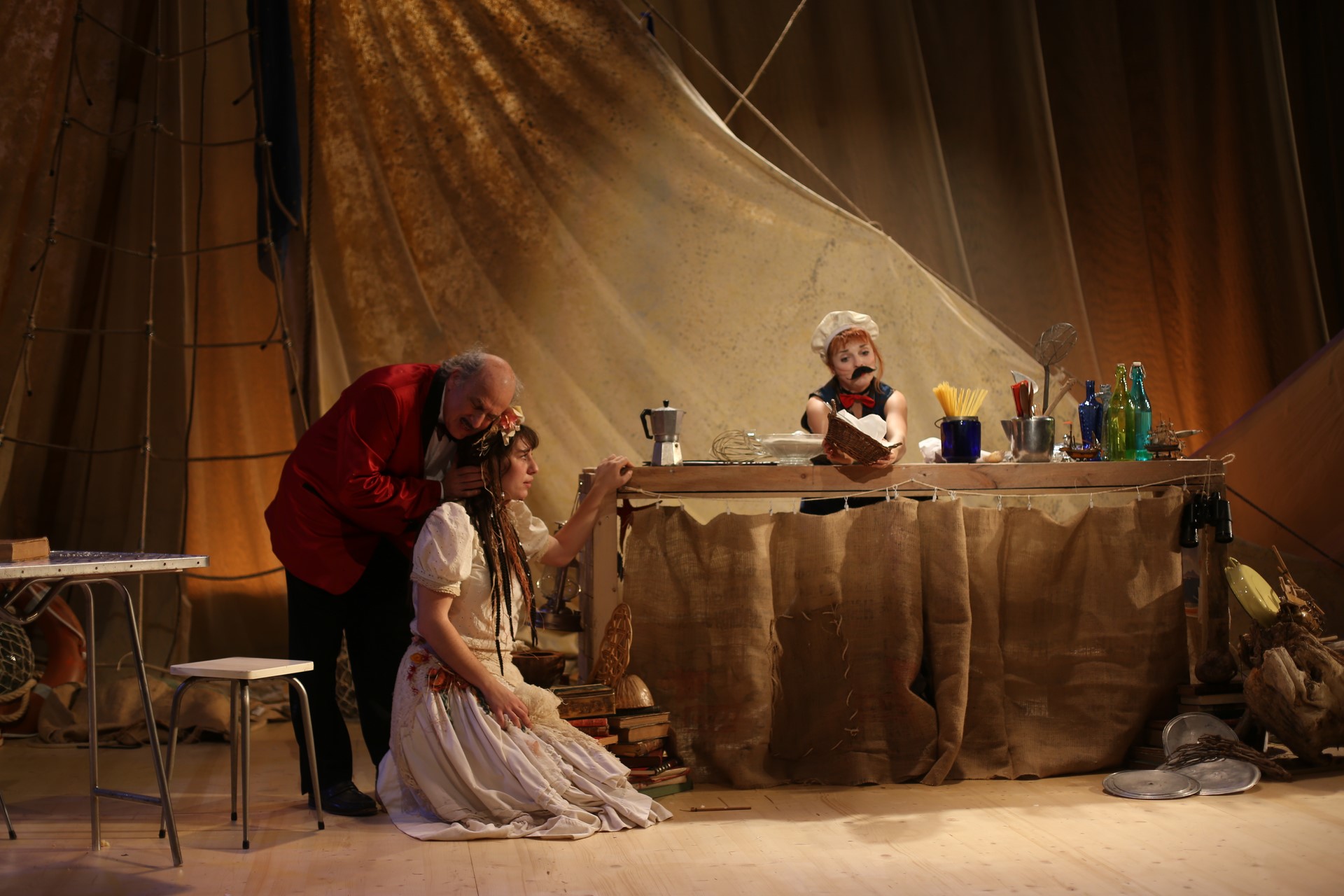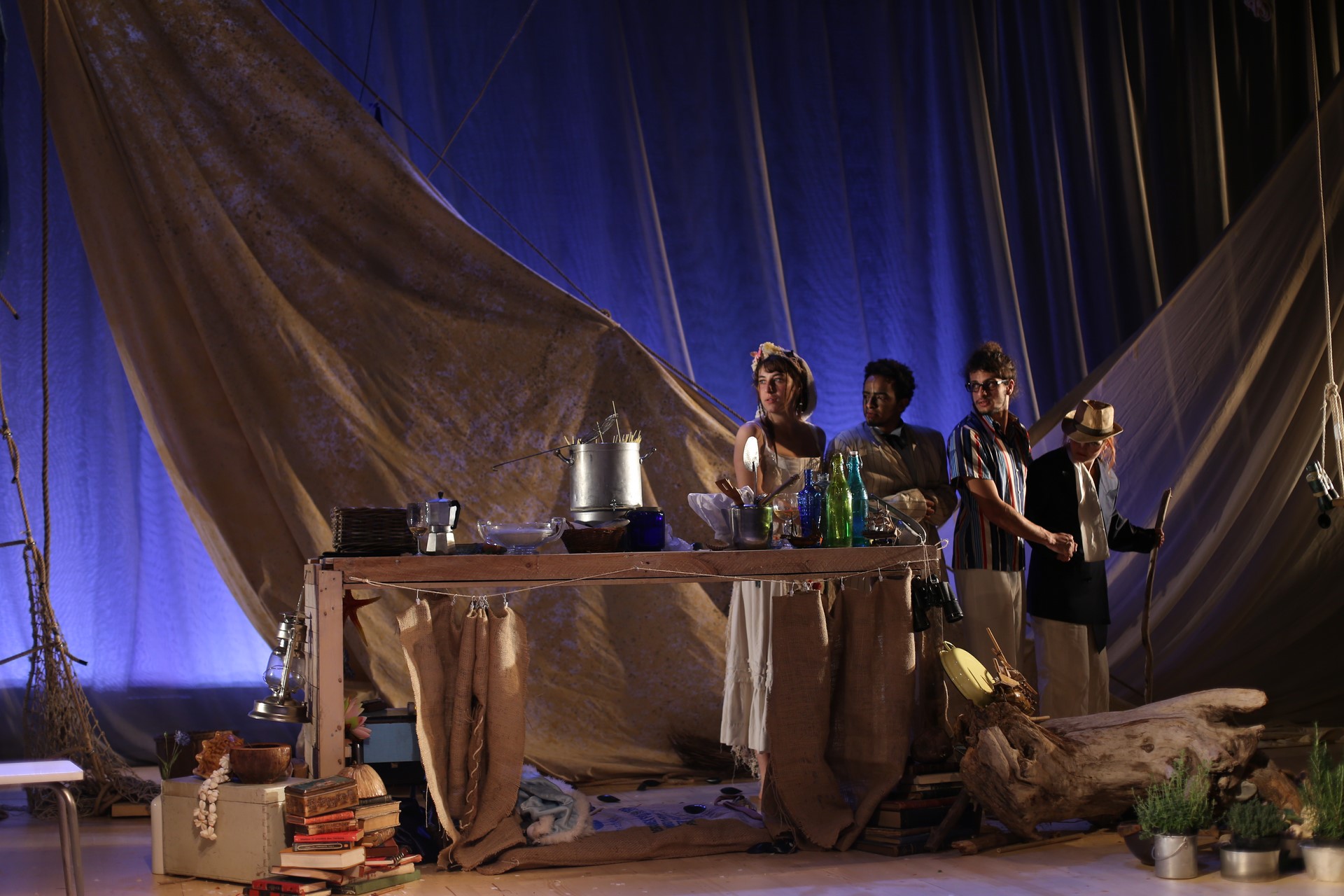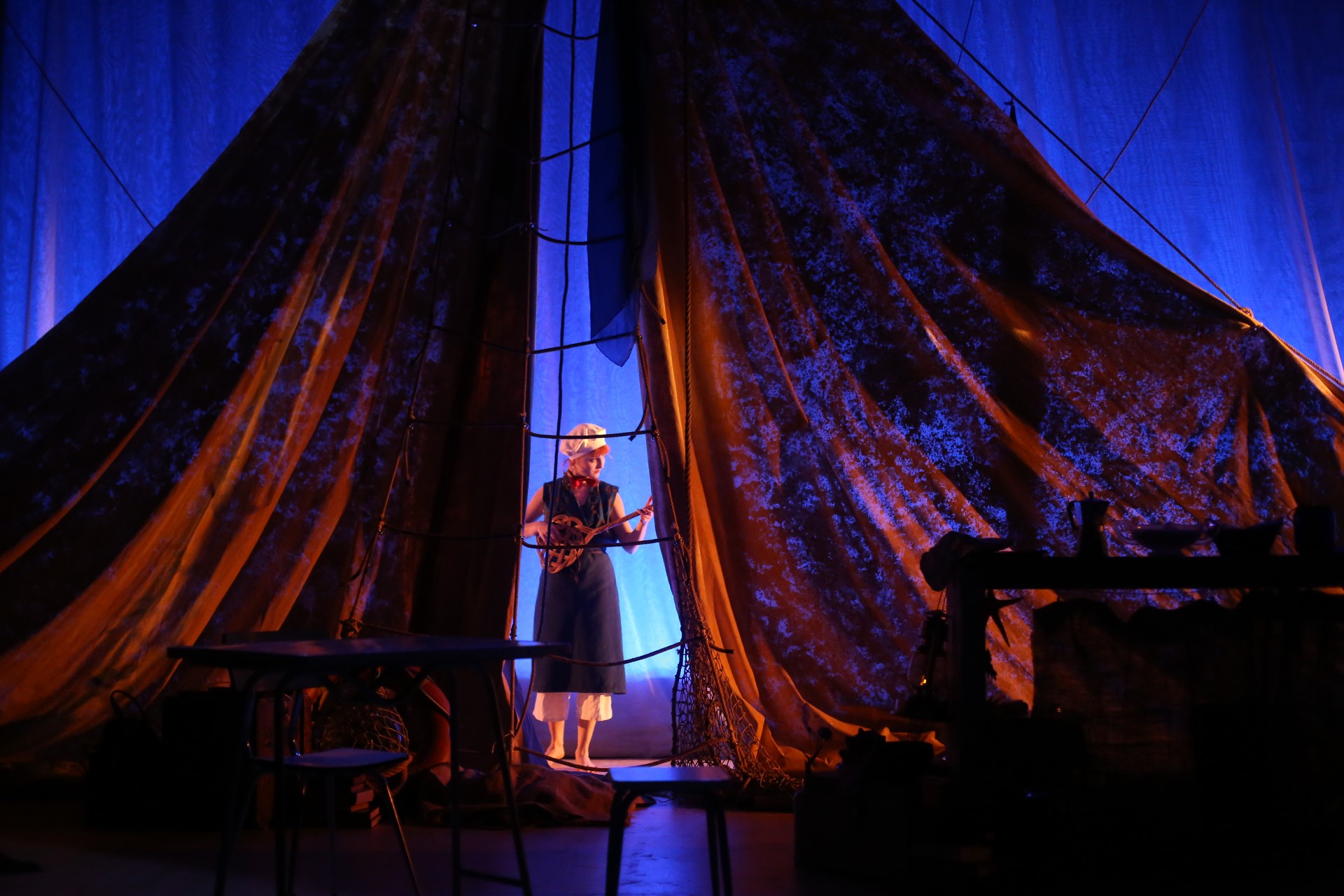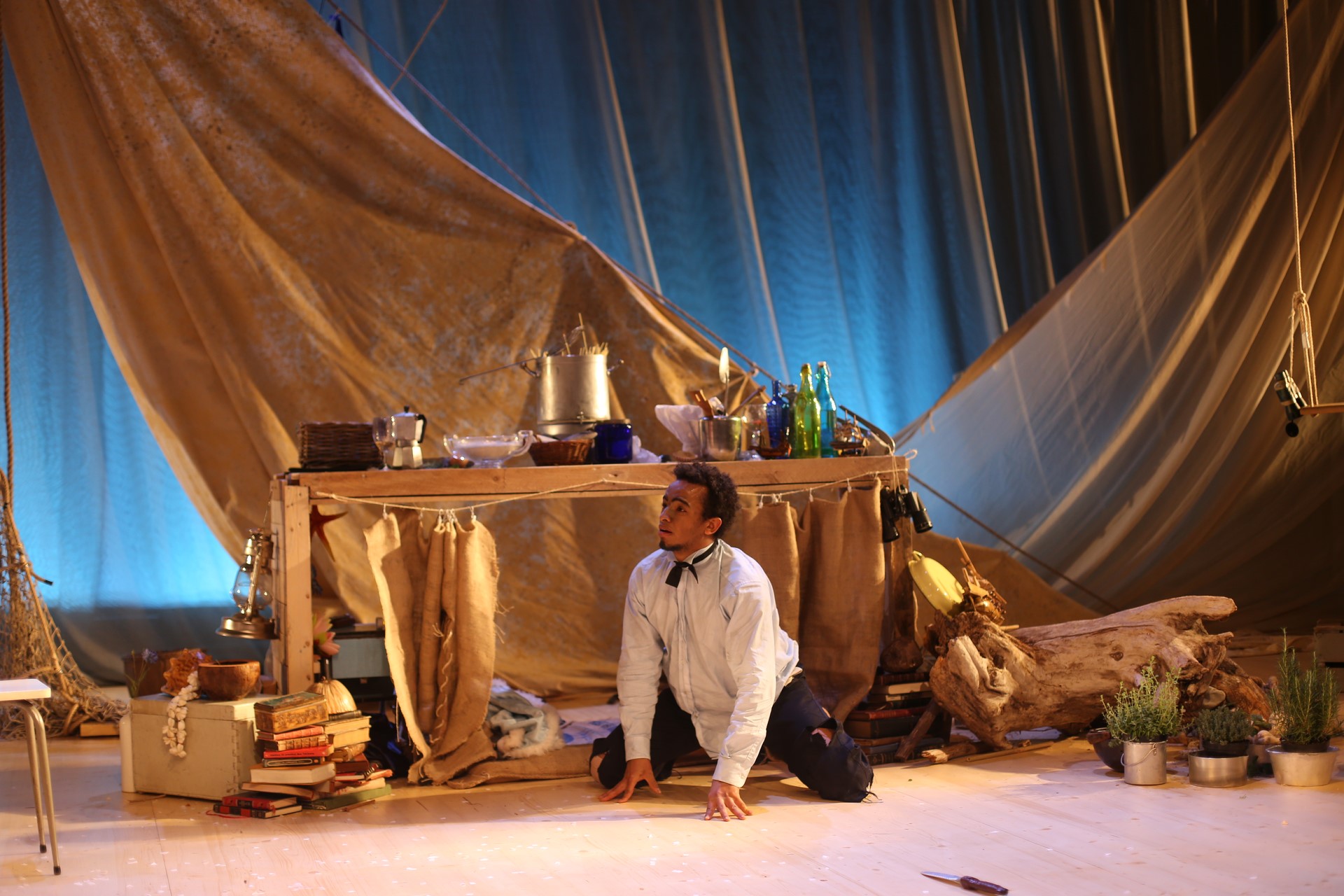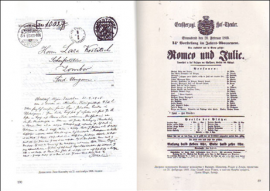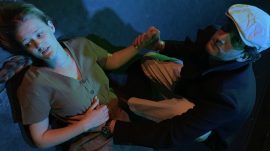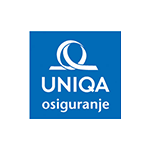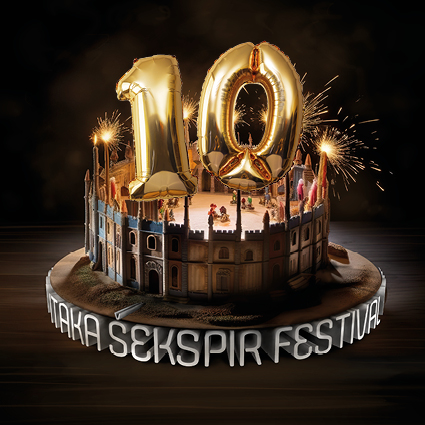ITAKA 6. SHAKESPEARE FESTIVAL 2019
TEMPÊTE !
Villa Stanković, Čortanovci / Saturday, 29 June at 20.00
TEMPÊTE !
Théâtre National de Nice / CDN Nice Côte d’Azur (Nice, France)
adapted & directed by Irina Brook
with Les Éclaireurs
Cast:
Kevin Ferdjani, Marjory Gesbert, Issam Kadichi, Irène Reva
& Renato Giuliani
Lighting: Alexandre Toscani
Sound: Guillaume Pomares
Costumes: Aurore Lane, Magali Castellan
Stage assistant: Tess Tracy
Production: Théâtre National de Nice - cdn Nice Côte d’Azur
Coproduction: Passionnément tnn
Running time: 1h 10’
About the play
With her creative flair and infectious joy, Irina Brook revisits Shakespeare’s The Tempest – her version is young and vibrant, designed with her troupe (Les Éclaireurs) and the compelling actor, Renato Giuliani, in mind.
The instant the play begins, there is a heightened sense of rebellion on the desert island where the sorcerer Prospero has been exiled for twenty years. The subjects of this tiny kingdom are on the verge of Revolution, in spite of the joyful Italian music and the magic tricks that play around them. Prospero’s daughter, the young Miranda, is bored to death and spends her time romanticizing about Love. Caliban, the island’s monster and Prospero’s slave, can no longer stand the harsh treatment of the spiteful gnomes sent to taunt him by his master. Ariel, a spirit of the Air and devoted servant, restlessly awaits the end of his contract. Everybody is dreaming of Freedom. Prospero is dreaming of Revenge.
But it is Forgiveness that ultimately transforms this little world. In the end, we are deeply moved, accompanied by the melody of a mandolin and swathed in an atmosphere worthy of an Italian movie.
The inimitable pen of Shakespeare and the light and joyful touch of Irina Brook combine to create a delightful and accessible show that moves soul-seated storms to reconciliation.
The actors embark on an exhilarating journey on the High Seas. Turbulent stuff!
Tempête !
Interview with Irina Brook
by Caroline Audibert
Why did you choose to give the play an Italian setting and look?
When I staged the play for the very first time in 2010, Renato Giuliani, an actor who is passionate about magic potions and cooking, stood out as Prospero. I looked for parallels with our own reality to give clarity to the story. Prospero’s kingdom becomes a big Neapolitan restaurant. I pictured in my mind a kitchen right on the sea with two Italian waiters smoking cigarettes on the beach; Miranda, wearing dark glasses like a movie star. It was then that I came across some sublime mandolin scores from the Italian lounge era of the 1950s…. Images of Fellini ran through my head, which was not surprising as Italy is so very present in
Shakespeare. Romeo & Juliet takes place in Verona, The Tempest evokes Naples and Milan…..
You have directed this play several time since 2010 – by revisiting Tempest, what do you feel you have to say today?
The first time I put on this show, it was the father-daughter relationship that fascinated me. Seven years on, it’s the imbalance triggered by power that captivates me. Prospero is a tyrant who wants to control everything using his magical powers. His daughter, servants and even Nature are at his mercy. He is driven by an insatiate desire for vengeance against his brother who betrayed him by stealing his kingdom. When the enemy’s son is shipwrecked on the island, Prospero must choose between revenge and reconciliation.
This is the tipping point, when the play plunges into the depths of the soul. Not only must he forgive but he must also cede his right to control everything around him: he must finally admit to his fragility, to let go and simply accept being human.
This is the last of Shakespeare’s works….
A good deal has been written about the ending – Prospero’s lines were to be Shakespeare’s adieu to the stage. The final words are full of mystery. They speak of immortality, metaphysics.. We can sense that they hold secrets that help us to understand the very essence of our humanity: “We are such stuff as dreams are
made on..” These nine words quicken a silence within us and with it, comes an inexplicable emotion that throws everything around us into disarray. Such is the genius of Shakespeare!
This play connects me to my father on an intimate artistic level. For years, we have had endless conversations about the essence of the play. The Tempest can be perceived on every level, from pure entertainment to the deepest depths of spirituality. There are fairies, monsters, magicians, lovers, people exiled to a desert island…we are in the realm of fairytales. But when we lend a different ear to the play, listen with another heart; we discover an unrivalled spirituality and intensity. Rather like the sea, we never really fathom the depth of this work.
Which translation do you use?
We translated the play from scratch as we went along, together with the actors. For me, the best way for a translation to remain faithful to Shakespeare is to make it a collective effort: his voice is far too big for one author. Once an actor “owns” a phrase, a second one transforms it, a third one will add a word.. that’s when I come in, to help make a choice between words from an English language standpoint. It was through this kind of hard work that the translation came about.
As in 2010, you have chosen the countryside as a kind of laboratory in which to create the play. Why?
Out in nature, we find ourselves in a living and organic space…without the imposing character of a theatre. It’s a different atmosphere for the artistic and technical teams, somewhere between a holiday camp and a monastery…and where we can cover a tremendous amount of ground in a short space of time! What’s more, in Tempest, it often rains and we actually hear the sound of the storm. This mirrors Shakespearean times. There was no roof on the Globe; actors and audiences were literally under the stars. His plays are brimming with references to the sky, the stars, the wind….. When you look up to the sky during a rehearsal,
the words and the elements take on a whole new dimension.
Irina Brook / Biography
Daughter of director Peter Brook and actress Natasha Parry, Irina Brook was born into
the acting profession.
Born in Paris, she grew up between England and France. At the age of 18, she went to study the dramatic arts with Stella Adler and appeared in several Off Broadway theatre productions. Returning to Paris, she performed under the stage direction of her father in The Cherry Orchard at the Bouffes du Nord. She next moved to London for a whole series of roles in cinema, television productions and on stage.
The first play she directed - Beast on the moon by the American Richard Kalinoski - was performed in London in May 1996. It was at this time that Irina discovered her calling as a director.
Deciding to focus on this, she directed Madame Klein by Nicolas Wright and Shakespeare’s All’s well that ends well. In 1998, she directed the French version of Beast on the moon (Une Bête sur la lune) at the Théâtre Vidy-Lausanne, then at the MC 93 in Bobigny and finally, after an international tour, to the Théâtre de l’Oeuvre in Paris. The show picked up prizes in five categories at the Molière Awards (including Best Director and Best Private Theatre Play). She also directed a television version, for which she received the Mitrani prize at the FIPA [Festival International de Programmes Audiovisuels in Biarritz].
Irina is one of the rare directors who, at the invitation of Ariane Mnouchkine, has directed the Théâtre du Soleil troupe and with whom she revisited All’s well that ends well at the Avignon Theatre Festival. In 2000, she directed Résonances by Katherine Burger at the Théâtre de l’Atelier. This went on to win her a Molière for the Best Female Newcomer as well as the SACD prize for Emerging Talent. She adapted and directed an all age group version of Homer’s Odyssey, for the Sartrouville festival.
Irina went on to direct Juliette and Roméo, first at Vidy-Lausanne and then at the Théâtre National de Chaillot in 2002; followed by Dancing at Lughnasa by Bernard Friel at the Théâtre de Vidy and at Bobigny, which then went on to tour, including Tokyo; Tennessee Williams’ Glass menagerie in 2001 at the Théâtre de l’Atelier, co-produced by the Théâtre Vidy-Lausanne; The Good Person of Szechwan by Brecht in Lausanne and at the Théâtre National de Chaillot, followed by a one year tour. Then came The Bridge of San Luis Rey based on the novel by Thornton Wilder, starting at the Théâtre Vidy-Lausanne and going on to the Théâtre de Sceaux; Marivaux’s L’Île des esclaves, performed at the Théâtre de l’Atelier.
In February 2008, Irina was once again invited to direct The Glass Menagerie, this time with Japanese actors at the New National Theatre of Tokyo. She devised En attendant le songe... a six-man version of A Midsummer Night’s Dream, originally produced by the Dedans-Dehors festival in Brétigny for outdoor performances in France and Switzerland.
The play was programmed for three weeks at the Villeneuve-lès-Avignon festival, before heading off on a French and international tour, with a month at the Bouffes du Nord (December 2007). The show was performed more than 300 times in France, Canada, New York and further afield.
In 2008, Irina formed her own theatre company in collaboration with Olivier Peyronnaud at the Maison de la Culture in Nevers. Around this time, she directed Somewhere... La Mancha based on the story of Don Quixote, which was performed at the Villeneuve-lès-Avignon festival in July 2008. This show toured throughout France and Europe (Amagro
festival, Yerevan Festival amongst others...)
Passionate about music, Irina went on to stage several operatic productions. She began with The Magic Flute, co-directed with Dan Jemmett, for the Reisopera in the Netherlands, under the direction of Ton Koopman.
In 2008, Irina formed her own theatre company in collaboration with Olivier Peyronnaud at the Maison de la Culture in Nevers. Around this time, she directed Somewhere... La Mancha based on the story of Don Quixote, which was performed at the Villeneuve-lès-Avignon festival in July 2008. This show toured throughout France and Europe (Amagro
festival, Yerevan Festival amongst others...)
Passionate about music, Irina went on to stage several operatic productions. She began with The Magic Flute, co-directed with Dan Jemmett, for the Reisopera in the Netherlands, under the direction of Ton Koopman.
She directed Eugene Onegin at the Aix-en-Provence festival, followed by La Cenerentola initially at the Théâtre des ChampsÉlysées, then at the Teatro Communale de Bologne and finally at the Royal Opera of Stockholm. Irina went on to direct La Traviata, in Bologne and in Lille, then Handel’s Giulio Cesare at the Théâtre des Champs-Élysées. In 2007, she was
invited to the Teatro Real in Madrid to direct Il Burbero de buon cuore by Martin y Soler. This production was then reprised in 2011 in Barcelona.
Since 2009, her theatre company has continued breathing life into its shows: Une Odyssée, En attendant le songe and Somewhere... la Mancha. The latest show is Tempête ! based on Shakespeare’s The Tempest.
In 2010, Irina presented her new production at the Mama in New York: Shakespeare’s sister ou la vie matérielle, adapted from writings by Marguerite Duras and Virginia Woolf and accompanied by original music by Sadie Jemmett, one of the show’s performers.
2011 saw the production of PAN, her version of Peter Pan, at the Théâtre de Paris.
In July 2012, Irina was invited by the Salzbourg Festival to direct Ibsen’s Peer Gynt, and to perform Tempête!.
In 2013, Irina reinvented her company, which took the name Irina’s Dreamtheatre in collaboration with the producerliterary agents Marie Cécile Renauld and Marie-Astrid Périmony.
In January 2013, she invited the cast of Shakespeare’s sister ou la vie matérielle to rework the show, this time in French, for a short French tour organised by the Maison de la Culture in Nevers and the Nièvre. The show was then reprised in September / October 2013 in New York.
Irina’s Dreamtheatre was invited to the 2013 Spoleto Festival with its latest production: La Trilogie des Îles (The islands trilogy) [Odyssée, Tempête! and L’Île des esclaves], where the company was awarded the Air France prize for most original stage direction.
It was in January 2014 that Irina Brook was appointed Artistic Director of the Théàtre National of Nice, Centre Dramatique National Nice Côte d’Azur. In June of that year she reprised Odyssey performing in various gardens and museums around Nice. In September 2014, she staged Ibsen’s Peer Gynt – the show was also performed at the London Barbican
Centre in the October and continued to tour throughout 2016. In January 2015, she directed Shakespeare’s Sister (La Vie Matérielle) by Virginia Woolf and Marguerite Duras, a production that also went on tour in 2016. She staged Hov Show with the actor Hovnatan Avedikian in December 2014 and reprised Tempête! based on Shakespeare (February 2015).
Irina Brook also directed two operas by Gaetano Donizetti: L’Elisir d’Amore at the Deutschesopera in Berlin in April 2014 and Don Pasquale at the Venice Opera in April 2015.
During the 2015-16 season, she continued with Hov Show, produced Terre Noire (Black Earth) by Stefano Massimi, Lampedusa Beach by Lina Prosa, with Romane Bohringer and created the Reveillons-Nous! (Wake Up!) Festival in November / December 2015, based on the COP21.
During the last season – 2016/17 – Irina directed Point d’Interrogation (Question Mark), a show that was performed between November 18th and 26th 2016. Terre Noire was reprised in January 2017 before leaving on tour, as well as Lampedusa Beach, in January 2017. On November 12, 2016, Irina organized an innovative, day-long marathon (My Body, My Planet) that gave centre stage to local players in the fields of renewable energy, organic and locally
produced food, alternative solutions for our well-being & health.. all with the common goal of being both respectful of the environment and of human-beings. The day was a resounding success, attracting 3000 visitors!
- 5 prizes at the Molière awards (including Best Director and Best Private Theatre
Play) for Une Bête sur la lune 1999 Mitrani prize at the FIPA
- Molière for Best Female Newcomer as well as the SACD prize for Emerging
Talent
- Irina Brook is named a Chevalier des Arts et des Lettres by the Ministry of
Culture
- Air France prize for innovation and French culture overseas
- Irina Brook is named Officier de l’ordre des Arts et des Lettres.
- Chevalier dans l’Ordre National de la Légion d’Honneur
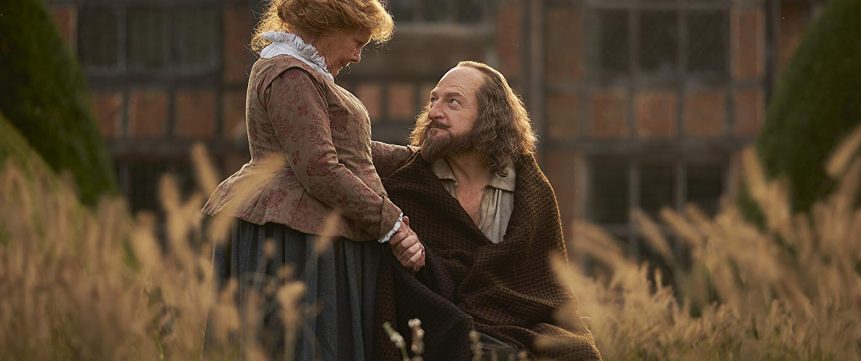 SHAKESPEARE FESTIVAL 2019 , Side programme
SHAKESPEARE FESTIVAL 2019 , Side programmeALL IS TRUE
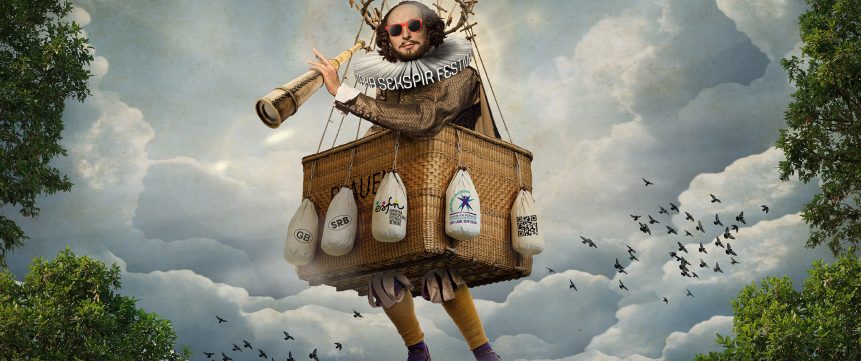 SHAKESPEARE FESTIVAL 2019 , Side programme
SHAKESPEARE FESTIVAL 2019 , Side programmeSHAKESPEARE FOR BEGINNERS
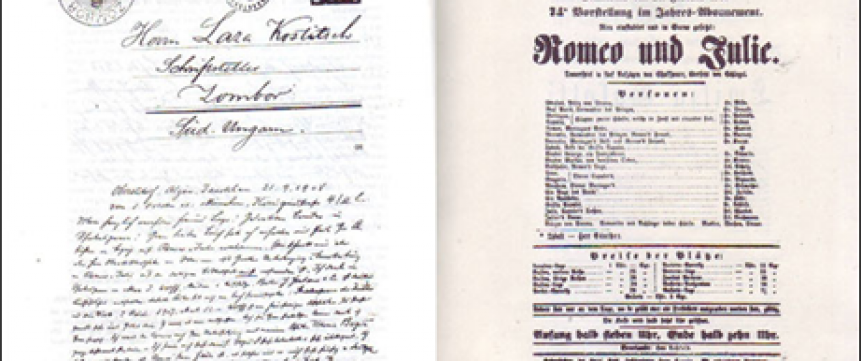 SHAKESPEARE FESTIVAL 2019 , Side programme
SHAKESPEARE FESTIVAL 2019 , Side programmeSHAKESPEARE STAGE OF JOCZA SAVITS
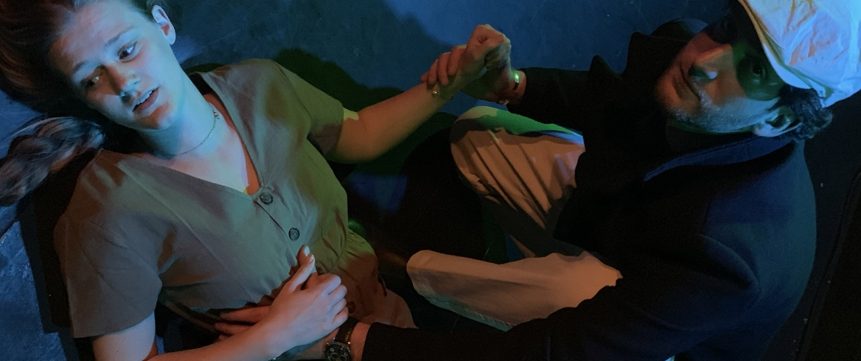 Main program , SHAKESPEARE FESTIVAL 2019
Main program , SHAKESPEARE FESTIVAL 2019TWELFTH NIGHT
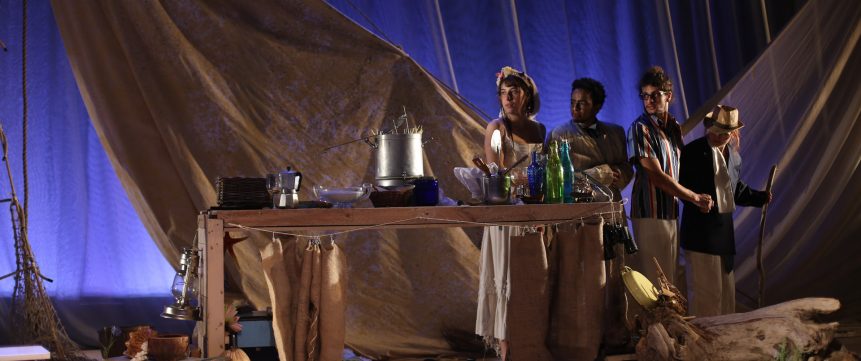 Main program , SHAKESPEARE FESTIVAL 2019
Main program , SHAKESPEARE FESTIVAL 2019TEMPÊTE !
 Main program , SHAKESPEARE FESTIVAL 2019
Main program , SHAKESPEARE FESTIVAL 2019MY SHAKESPEARE
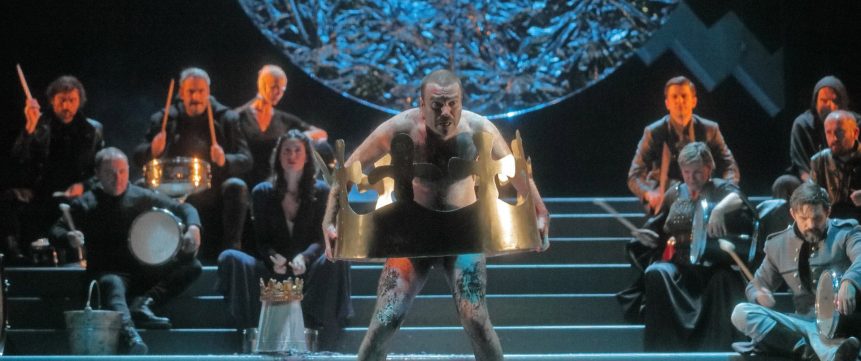 Main program , SHAKESPEARE FESTIVAL 2019
Main program , SHAKESPEARE FESTIVAL 2019RICHARD III
 english
english  srpski
srpski 
